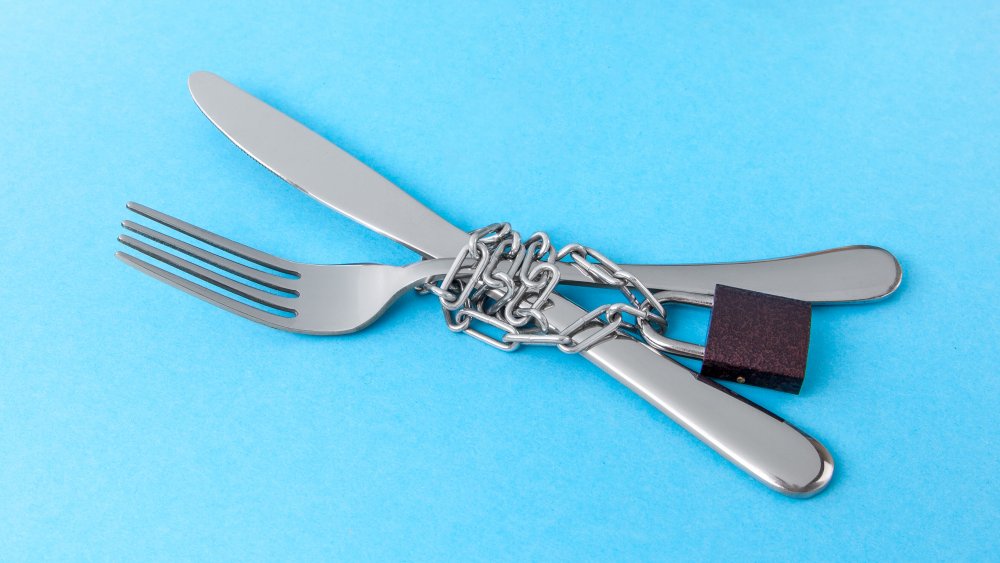How Long Can You Live Without Food?
In 1981, the Hindustan Times reported that British Prime Minister Margaret Thatcher "allowed a member of the House of Commons, a colleague in fact, to die of starvation," according to The Nation. Britain's Iron Lady had been pitted against the iron will of Irish Republican Army member and Member of Parliament Bobby Sands, who won his government seat while wasting away in Northern Ireland's H-Block prison. Inmates in H-Block "spent years in total lockup, naked with nothing but blankets to cover themselves, with no reading materials or even the simplest comforts of life."
Sands launched a 66-day hunger strike, consuming only water and salt to protest the despicable conditions. His fellow tortured souls followed suit, denying themselves nourishment to protest the denial of their humanity. But Thatcher did not yield, permitting inmates to die rather than giving in to demands for better treatment. A total of 10 hunger strikers perished. Sands' act of defiance was inspired by Terence McSwiney, who died in a British prison after a 74-day hunger strike, per UPI. McSwiney famously insisted, "It is not those who can inflict the most but those who can suffer the most who will endure." But just how long can a body endure without food?
It's not about the wait but the mass
As Healthline describes, it typically takes just eight hours for your body to alter its normal metabolism in response to lack of food. However, you won't find too many studies measuring how long it takes for someone to starve to death because modern science frowns on that sort of research as unethical. A 2009 paper in the German journal, Archiv Fur Kriminologie, looked at instances of people deprived of food and water after being buried alive or trapped and determined that their bodies gave out after 8-21 days. A trapped or buried person with access to water but no food might last for roughly two months, which is around the amount of time Bobby Sands (depicted above) survived. The British Medical Journal documented several hunger strikes and found that they tended to end by day 40 or earlier due to adverse effects.
Healthline writes that there may be a critical body mass index (BMI), beneath which survival becomes impossible. In men the cutoff appears to be a BMI of 13 while in women it's 11. Women have a survival advantage because they retain protein better than men and naturally have a higher concentration of body fat. Obviously, obesity would also increase the amount of time it takes to succumb to starvation, as the body would have more fuel to burn before cannibalizing its own muscles.

